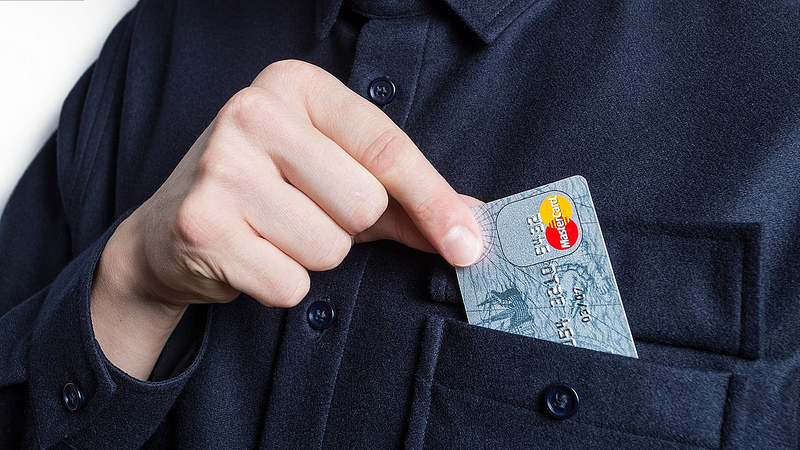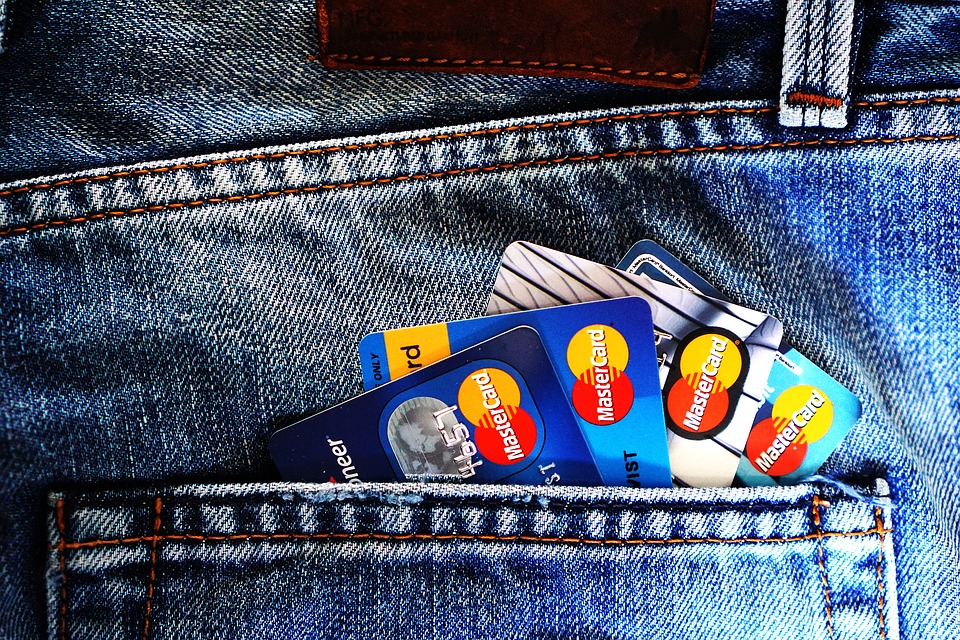
Credit cards can be a tricky business.
On the one hand, you need credit cards in order to build up your credit.
On the other hand, you don’t want to end up drowning in debt.
You have to walk a fine line when it comes to credit, and use your cards very responsibly.
But it begs the question – how many credit cards should I have?
Well, there isn’t a magic number that will automatically get you an amazing credit score. The number of cards you have depends entirely on your current credit situation.
However, we are by no means saying that it’s impossible to determine how many credit cards you should have.
There are some relatively straightforward ways to determine how many credit cards you should have in order to maintain or improve you credit score, and we’ve put together a few guidelines to help you out.
The Truth Of The Matter

Many people believe that the number of credit cards you own greatly impacts your credit score – but that’s more or less a myth.
The number of credit cards you own is much less important than how you manage all of those accounts.
If you have 10 credit cards and are managing them very well, then you’ll see a positive impact on your credit score.
But if you have one credit card and are overusing it, not paying your bill on time or going over your limit, then you’re sure to see your score go down.
That being said, have a ton of credit cards isn’t the best idea either because it increases your debt potential.
See – the answer isn’t so simple.
The number of credit cards you should have is a very subjective matter and takes some thought, care, and a closer look at your current debt situation and credit score.
Understanding Your Credit Score

We hear the words “credit score” thrown around a lot, but if you’re just now opening up some credit accounts, you may not have a firm grasp of what that actually means.
Investopedia defines your credit score as “a statistical number that evaluates a consumer’s creditworthiness and is based on credit history.” Simply put, it's a record of your demonstrated ability to repay debts.
Lenders use your credit score as a tool to determine the probability that you will repay your debts. The higher your score, the more financially trustworthy you are in their eyes.
The FICO score is the most commonly used, and ranges from 300 to 850.
If your score is below 640, you are more likely to have higher interest rates, and perhaps shorter repayment terms or other limitations on your accounts.
A low credit score can have a negative impact on your day-to-day life. You could have a harder time renting an apartment or have to pay a higher deposit, for example.
However, if your score is greater than 700, you will see much lower interest rates and will ultimately pay less money over the course of your lifetime.
Your credit score is determined by five major factors: payment history, credit utilization rate (the percentage of credit available to you that is currently being used), length of credit history, types of credit, and new credit.
The most important of these are your payment history, which accounts for 35% of your credit score, and total credit utilization rate, which accounts for 30% of your credit score.
So as you can see, the actual number of credit accounts you have open (which would fall somewhere in between the length of credit history and new credit factors) is not as important as the responsibility you demonstrate when using your credit cards.
In a way, that’s good news because no matter how many cards you may have, you can still have a good credit score so long as you pay your bills on time and keep your utilization rate low (as a rule, aim to use less than 30% of your available credit).
On the other hand, it doesn’t make answering the question “How many credit cards should I have?” any easier – especially because the number of cards you have can affect your score in subtle ways.
Determining How Many Credit Cards You Should Have

According to Credit Karma, the average American has an average of 2.69 credit cards based on data compiled by TransUnion from the first quarter of 2017.
However, the average number of cards amongst users of Credit Karma is closer to 5.
So as you can see, there isn’t a perfect number.
It all depends on your current situation.
One helpful way to determine the answer to "how many credit cards should I have?" is for you to have a look at how many cards people with excellent credit scores actually have.
FICO recently reported that cardholders with scores above 800 have an average of three open cards.
That number falls just above the national average and serves as a good baseline for determining whether or not you need to alter your current credit card situation.
If your score isn’t the best, you can certainly benefit from opening an additional account. Opening another account is one way to increase the amount of available credit to you, which means you can spend more money without harming your credit utilization rate.
Plus, different cards offer different benefits that could be advantageous for you in the long run.
Of course, make sure you do your research before applying for a new card to make sure you pick one that will actually be worthwhile for you – especially because every new credit inquiry you make affects your credit score.
In other words, you don’t want to haphazardly apply for a bunch of cards and see what happens. Instead, you should spread out your requests for a new card, so it doesn’t have a big impact on your score.
So, that number of three open credit cards seems like a reasonable and responsible number. However, if you have more than three cards open, you do NOT want to close them to get to that number.
Having open accounts that are inactive will not impact your score. If you close an account though, you are eliminating your available credit, which has an immediate impact on your score, and you are reducing the average age of your account, which impacts your credit history.
So, if you are trying to improve your credit score, avoid closing accounts as much as possible.
You can also ask for an increase in your credit line if you don’t want to open another card. This allows you to achieve a lower credit utilization rate as long as you do not increase your spending, which in turn will have a positive impact on your credit score.
But ultimately, the amount of credit cards you should have is pretty much up to you.
We pretty much agree that aiming for 3-5 open credit cards is a safe range to stick to, but if you have 15 cards and manage them well, then you shouldn’t see a negative long-term impact on your score.
So you see – there is no magic number of credit cards that you should have.
The Real Key To Good Credit: Being Smart And Responsible

Above all, your credit score will benefit from responsible management of your credit accounts.
As long as you are smart about your credit usage and feel confident in managing multiple accounts, we don’t really see any reason to restrict the number of cards you own.
The downsides to having a ton of open cards are that it can be a hassle to keep track of all the bills, and you could trick yourself into accidentally spending more.
Some banks may even close inactive cards, thus causing a decrease in your credit score. So, you have to make sure to occasionally spend each of your cards and pay the bill on time.
But if you think you can handle that, then use your best judgment when determining how many credit cards you’d like to have.
In short, there is more than one way to skin the proverbial credit-card cat.
The main takeaway is to open the number of credit cards that you are comfortable managing, and don’t go on any huge shopping sprees that you’ll have to pay interest on later.
And, if you are ever uncertain as to whether or not you should open another card, just remember:
Smart credit card usage is always better than more credit card usage.
Leave a Reply